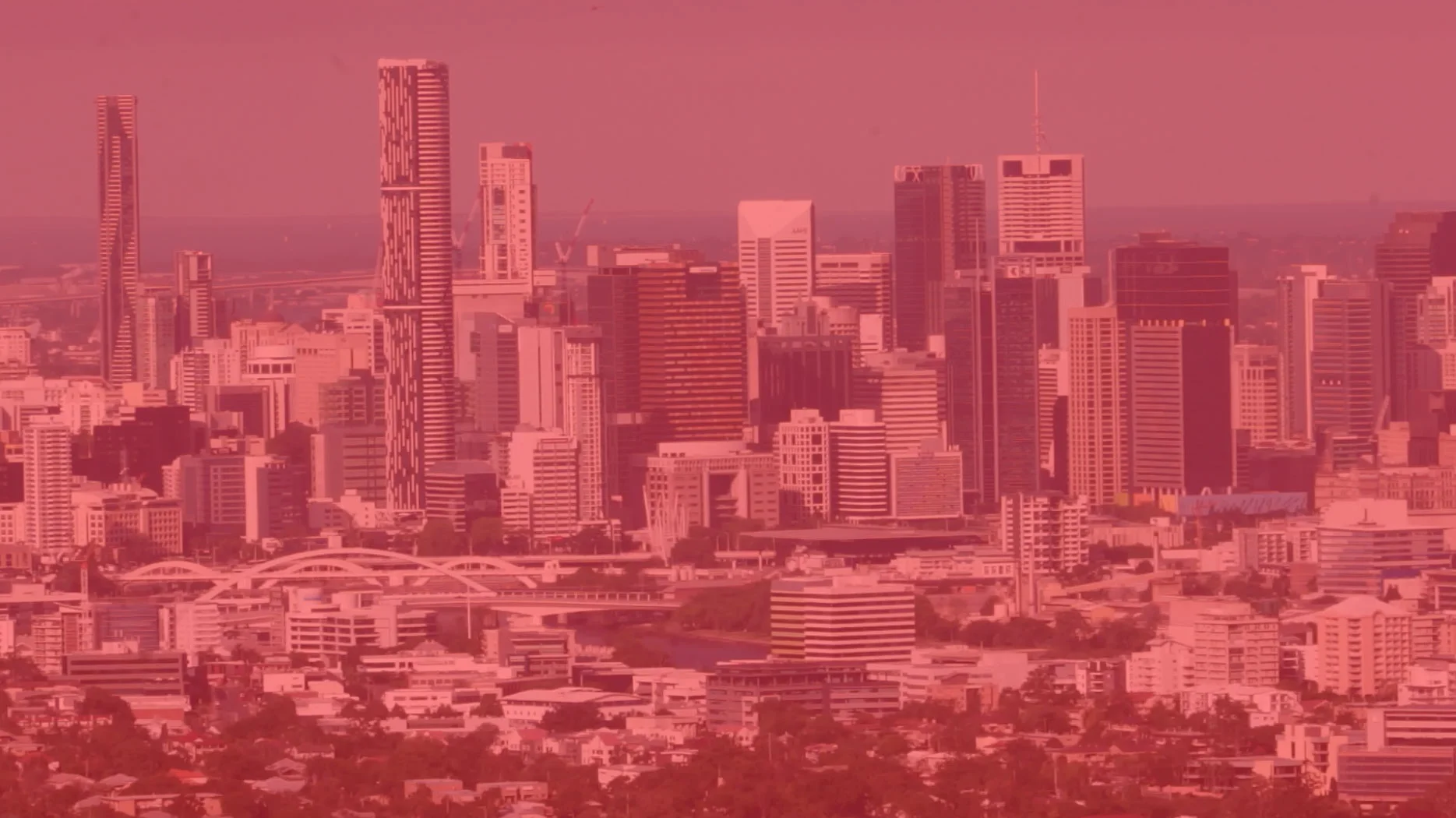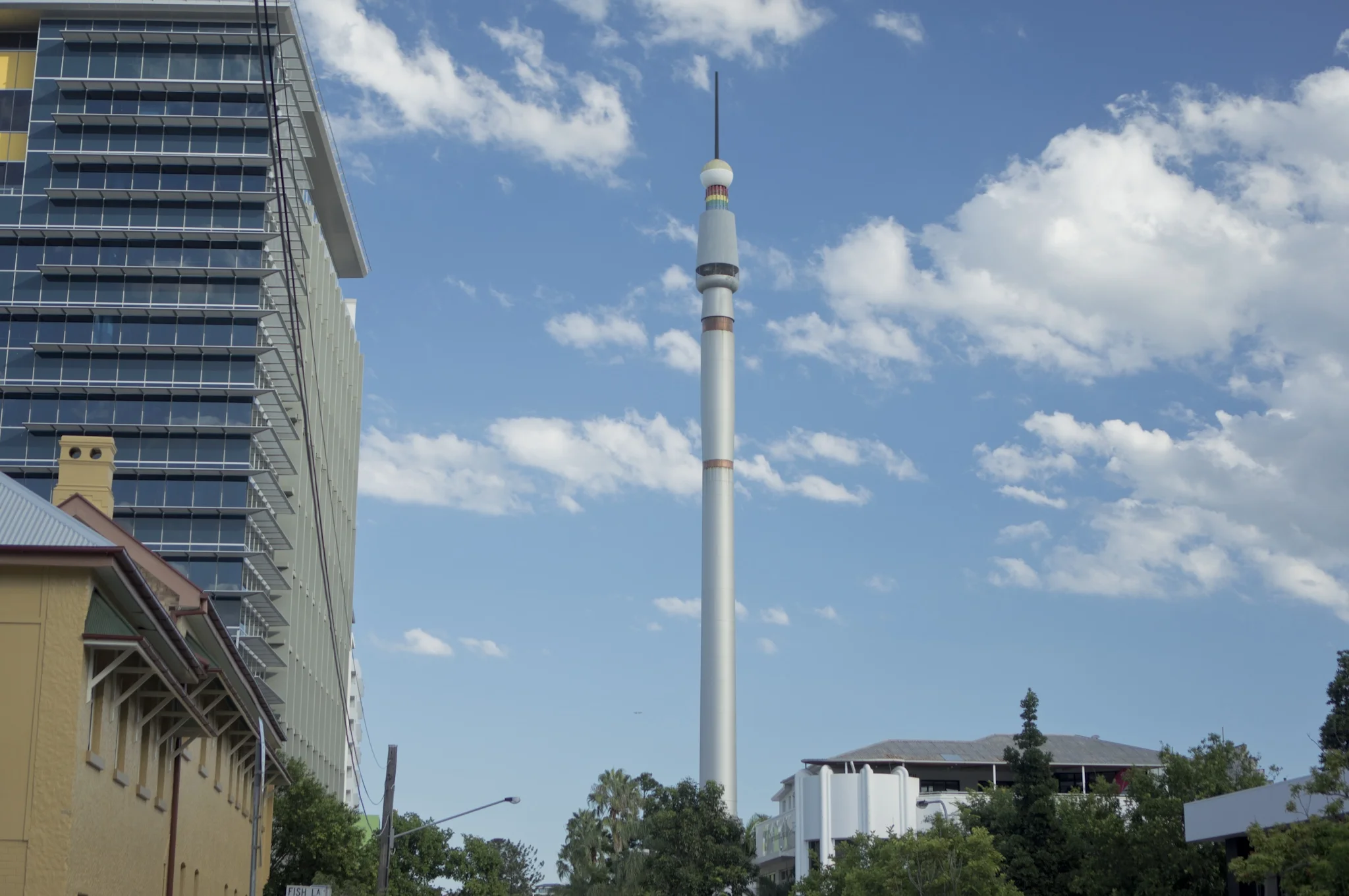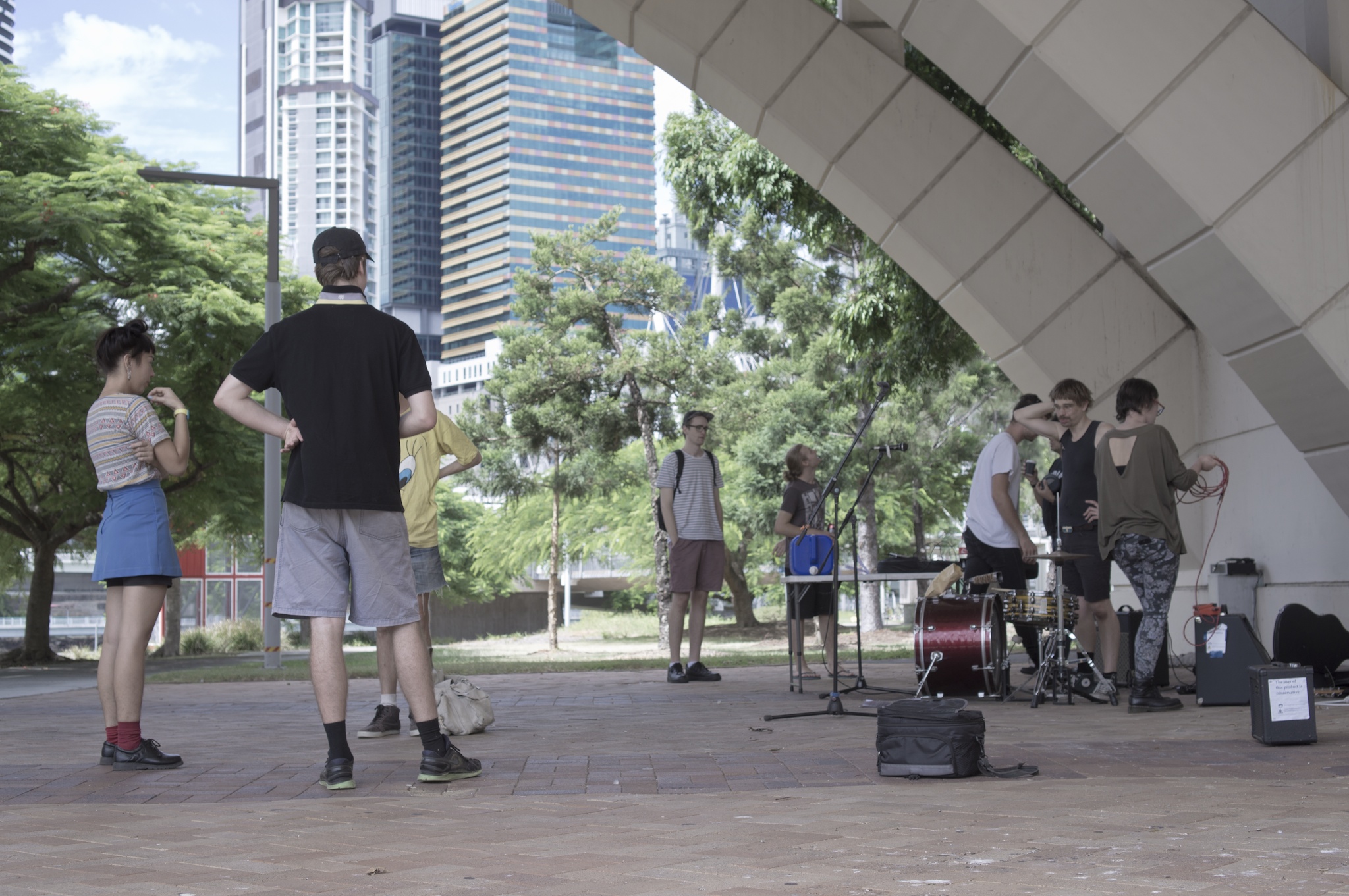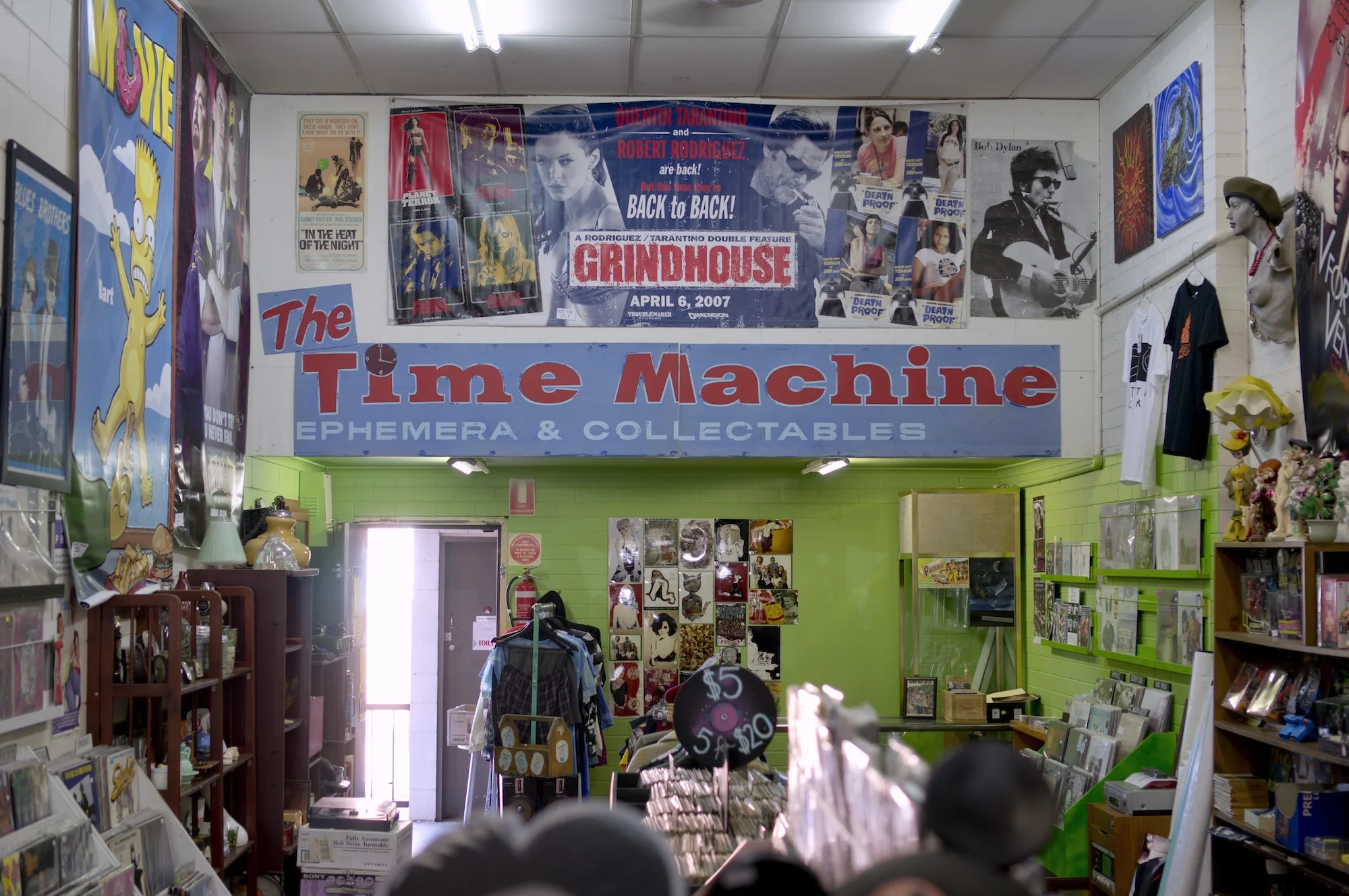




Brisbane Noise
By Dan Leach
Brisbane Noise
By Dan Leach
If viewing on computer or tablet click here for the full multimedia experience.
It’s rare for any writer to be referred to as a genius, let alone a music writer. Think about what that means. It implies an almost omniscient ability to analyse, to get to the truth of things, to capture and describe, to effect change beyond music.
Yet this is how Brendon Annesley has been described time and again for his fearlessly outspoken writing on punk and rock ‘n’ roll in his fanzine, ‘Negative Guest List’. As a result Brisbane’s underground music scene is still recovering from his tragic death in 2012, aged just 21.
Despite his self-professed disassociation from the world (he once referred to a deep sense of shame that hung over him “like some horrible pillow of goatshit”), or perhaps because of it, he did what all great writers do: tell the truth whatever the consequences.
Ignoring threats of stabbing and banishments from gig venues, he exposed the mediocrity of the majority of bloggers and formulated his own legacy through his fanzines, his label and membership of the bands Meat Thump and White Cop, inspiring musicians and writers around Australia and far beyond.
But what is this musical subculture that invites such vehement passion and provides the material and context for a writer of outstanding talent to take flight?
Annesley's short life and sudden death is just one of the fascinating elements of Brisbane undergound music and perhaps offers an important clue to understanding it. Like him, its protagonists can be cruelly self-deprecating but, at the same time, fiercely proud.
Despite a population of only two million (half that of Melbourne and Sydney) Brisbane’s rich history of punk and rock has seen its cultural impact extend worldwide since the 1970s, beginning with the Saints (among the first bands ever to release punk) and continued today by the likes of Blank Realm and Kitchen’s Floor.
Committed to rebelling against the mainstream, there is little money to be made, but this has its own advantages. Creation and performance are equally unfettered, celebrating a freedom of spirit that brings to mind some of history’s most important artistic movements - the hippies of the 1960s or the French Bohemians in the early 19th century.
In this feature we take you into a unique musical world where collaborations take place at pop-ups, where people take their goon-sacks to BYOs, where it seems everyone runs a distro, where cassette tapes are preferred to downloads and zines over blogs, and where some of the most important gigs take place not at major venues, but at houses, record stores, or under bridges.
Welcome to Brisbane Noise.

Ecology
Ecology
In 1974, Chris Bailey, Ivor Hay and Ed Kuepper formed The Saints. Inspired by 1950s rock 'n' roll and the proto punk of the Stooges, their self-released (I’m) Stranded in 1976 was among the first punk records ever to be released. Along with the Go-Betweens, their anti-establishment ethos was fuelled by what the author Andrew Stafford calls in his book, Pig City, Brisbane’s 'neo-fascist political climate’.
Gigs were frequently shut down and profits seized by corrupt police with public protests being forcefully extinguished in what had effectively become a police state. When the 1989 GE Fitzgerald inquiry ended Joh Bjelke-Petersen’s 19-year reign as premier of Queensland and led to the jailing of three ministers and a police commissioner, it not only vindicated the band, but assured them legendary status as champions of freedom. Perhaps more importantly, it set the spiritual framework in place with which all future bands could align.
Matt Kennedy, who began Kitchen’s Floor in 2007 solo recording on a dictaphone, strongly feels this influence. “These bands are cult heroes”, he says. “Razar, Young Identities, The Saints, there are heaps that thankfully did not go quietly into that good night.
“These days we are still stuck with a conservative government because most people seem to be fucking idiots, but it always creates the anger of inspiration for subversive creative output.”
Today, it is not just about punk or rock ’n’ roll. The scene comprises a diverse set of genres and styles. Joshua Watson, member of Kitchen’s Floor and the Sewers, and owner of record label Virtual Cool, says: “The underground scene in Brisbane is so colourful because it's full of all these mini-cliques: stoned noise hippies, sarcastic synth-punks, drunk rockers, DIY-lifers, barflies and smart-casual observers.
“What they have in common is that they're all left of 'left of centre'. You'll generally only hear these bands on community radio and getting an insultingly brief mention in any music press. They're not generally the happy-go-lucky yuppie intern looking to get ahead in the 'music biz'. It's rather a sort of quiet pride that's mistaken for arrogance.”
Andrew McLellan, an experimental musician and engineer, aka Cured Pink, believes Brisbane’s strength is found in its divergence: “Typical line-ups, of the sort I'd think are the underground shows, traverse a range of styles and influences so that a band that is indebted to Goner Records will appear next to one indebted to italo disco.
“But there isn't enough of an audience for any of these niche tastes to have a dedicated lineup or dedicated audience - so everything gets infected. New groups start out of the existing ones.”
Such cross-pollination is accelerated by the electronic influence. Danny Venzin, creator of Brisbane label Lost Race Records, says the city’s electronic music shares the same roots: “These days that garage rock mentality is being applied to electronic music with DIY electronic music being more and more prevalent. I'd say that Cedie Janson and I have come up after this and also as a reaction to it, but it's still part of the story.”
This DIY ethos is embodied in ’zines’. Short for ‘fanzines’, the self-published booklets glued, photocopied and stapled together, appeared with the international punk movement in the 70s in response to the lack of coverage from the mainstream press. Often created by a single person and sold at ‘distros’ (stores), a zine might contain music and gig reviews as well as news. Some, like Annesley’s ‘Negative Guestlist’, can inspire a whole generation.
Kennedy, who also runs the distro and record label Eternal Soundcheck, says: “I source the zines I sell in my distro from all over Australia or elsewhere - basically what I find interesting. Writing is an artform that is sadly being consumed as a digital-only interface and I'll support these handmade printed zines as long as I can.”
Another distinguishing feature of Brisbane is its remote location. While Watson sees the isolation as an advantage (“people feel comfortable to try their hand at new ideas or collaborations”), for Kennedy it is a two-edged sword: “The most interesting people here mostly move away to Melbourne or Sydney once they reach their early to mid-20s. Brisbane is comprised of the dregs that chose not to leave and make the most of it, like myself.
“It's a city that you can really make your own if you put the effort in. It can be shaped to your liking, which ain’t possible in the aforementioned cities.”
All of this conspires to create what Watson feels is the city’s unique sound: “People definitely do say that there is a Brisbane sound. I reckon there is a 'Brisbane sound' or 'attitude' at least. I can't really put my finger on it... but you can usually tell a Brisbane band apart from the others. Tasmanian bands are totally unique as well and it's the same with Adelaide to an extent. Maybe it has to do with just not living in Melbourne or Sydney.”
In Watson’s excellent documentary Brisbane 2012, Joel Stern, curator and musician, describes the city when he arrived in 2004, as having: “..a weird irreverence in the culture, in the music especially, in the noise scene, in the experimental music scene.
“There seemed to be a strange attitude. It was like...it still had a weird hicksville country town vibe, but it was mixed.. I dunno...just an aggressively strange sensibility which I found refreshing.”
It was different, he says, to underground movements he had witnessed in Melbourne and the UK where artists would very self-consciously intellectualise their experimental music.
“In Brisbane it was much more of a ‘just do it’ situation.”
People like Watson and Glen Schenau (Per Purpose and Cured Pink) understand they are part of something important and take pride in documenting the scene. Schenau told Crawl Space magazine: “The photos are an effort to document what is a constantly growing and mutating performance culture that, through my own obsession with the recent past, I know will have its place in the future where there are new nerds who would like to know what band x looked like.”
It is now up to the new batch, bands such as Workshop, Brainbeau, Sprot, Clever, and the Sewers, to continue the traditions.

Dislocation
Dislocation
It’s midnight. You’ve turned up at an ordinary-looking house in Paddington, Brisbane…number 116. You can hear the thrashing of guitars - could be an interstate band: Naked on the Vague, the Axemen, Chrome Dome, and Mad Nanna have all played here. Inside, the rooms are crammed with people. You’re stuck in a hallway and can’t see who’s playing. But that’s ok, you’ve brought a goon sack [a bag or cask of wine] or a tally of VB [a long-neck beer], someone is passing round a joint and you’ve scored some pingers [ecstasy] for later.
Matt Kennedy in '116' (Photo: Joshua Watson)
One of the intriguing things about the Brisbane scene is the gig venues. The excessive police scrutiny and lack of venues in the 70s and 80s created a tradition of hosting live performances at houses or taking them to parks, under bridges, or to disused buildings. Today this serves to maintain tensions with authorities which, as Kennedy suggests, keeps the scene healthy. Tension or not, the freedom of dislocation adds a romanticism to the music.
Kennedy says: “The final show I held in that lounge room was on my 28th birthday last June with Scraps, Brainbeau and Club Sound Witches. It was a wild night and a worthy farewell to eight years of house shows.
“Things had become a bit too nuts a few years ago where people were showing up who weren't there for the music and would ruin it by being jerks. It became more stress than fun so I stopped doing them for a while.”
Watson recalls: “They'd start in the early evening and ended whenever Bobby Bot (the Wonderfuls) finally left. House shows were always much better than going to a bar, much more relaxed. ”
Dracopede (Left) and Gerald Keaney (organiser, activist, philosopher) at the Solar Powered Guerilla Gig under the William Jolly Bridge, Grey St. South, Brisbane (Photo: Joshua Watson)
“The most brutal gigs are those like 12-hour 'fests' that start in the afternoon and just never seem to end. Late-night jams after shows were always the best. Joel Stern [an art curator and musician] would always instigate something like that and we'd stay up until morning drinking, smoking and playing vuvuzelas to Casio drum machines.”
Gigs also take place in shops according to Watson: “I think the first "underground" gig I went to was Matt Horseshit in a tiny bookshop in West End.”
Daniel Stuth, co-owner of The Time Machine - a record and pop-culture store in Nambour - describes the immense heat at some of the gigs they host: “That’s the thing I think I love though - just embracing the sweat. It smells like Big Day Out [festival] urinals in there and you just run with it.
“You walk outside and you go: “That was sick!” and your ears are ringing and you’re searching for your beers ‘cause someone has just nicked them out of the fridge. It’s the whole experience that makes it fun too.”
Sometimes the venues are not strictly legal, as Jimi Kritzler, the writer and musician, remembers: “There was an abandoned cinema in the next neighbourhood and we decided for our first show we might as well break in and play. It was wild and fun.”
Kennedy says the allure can be irresistible: “There's always that excitement of playing somewhere other than a standard venue. If you can find an abandoned house or cinema or building it's always fair game, as long as you have a generator to power the amps and the guts to do it. That still happens quite a bit, namely under bridges or in parks which have seen some great generator shows over the last few years.”
'The Slacksmiths' play at the Solar Powered Guerilla Gig under the William Jolly Bridge, Grey St. South, Brisbane
These gigs welcome experimentation. McLellan remembers a regular Sunday night called Audiopollen Social Club (2006-8) that would prove inspirational to the likes of Blank Realm and Cured Pink: “It wasn't unusual to have a near-silent jazz-tradition free-improvisation trio share a bill with a touring grindcore band, a doom drone soloist, and a whacked-out electronic DIY beats duo.
“It wasn't ‘anything goes’ strictly speaking, but I haven't really seen that level of freedom awarded anywhere else. You could really fail at what you were trying and it was the best place to do so.”
Audiopollen was not your regular gig night. It dared to test the very structure of performance, questioning the paradigm of music consumption at its most fundamental level; the relationship between musican and audience.
In Watson’s Brisbane 2012, founder of Audiopollen, Joel Stern said: “The audience got involved in everything in a really intense way - not just heckling but there was a lot of participation in projects.
"Someone would be playing and they would kind of respond to provocation from the audience and start playing in another kind of way, or would stop playing and start talking. And the talking would somehow be part of the same process as the playing.”
This kind of experimentation is possible largely because no one is in it for the cash. “There's really no gold carrot being dangled on the chain for anyone in Brisbane”, says Danny Venzin.
“If you want to make music here, it has to be for art's sake because, unless you are a super-commercial band, nobody is interested in signing you and nobody will pay you more than a few dollars to play a show.”

The Time Machine
The Time Machine
“We were all living in Brisbane, we’d all pretty much exhausted everything and weren’t doing nothing at all. We’d all lost our jobs, or our minds. We all came back to the coast and, just out of the blue, we all heard that the owner of The Time Machine was sick.
“We all came here at once, saw it was for sale, ummm yeah I dunno. Two days later, Daniel called and asked if I were keen to jump on board to start running a bloody store. [chuckle] That’s pretty much it.”
Benjamin Paskins is describing how he and two friends, Daniel Stuth and Barton Worthington, took a leap of faith in 2012, pooling their savings to take over a record and obscure music culture shop in Nambour, a small town north of Brisbane.
Though disparaged by some for being too parochial, Stuth feels Nambour has the potential to become a genuine centre of culture and, since turning their basement into a performance space, they have managed to attract bands from all over Australia and the US.
Paskins says: “That’s what makes it worth it – when you see a band poster and it’s got like Melbourne, Sydney, Brisbane and fucking Nambour. [laughs] Just seeing it like that puts a smile on my face, for sure.
Phil Daltron (Left) (friend of The Time Machine) and Daniel Stuth (co-owner) (Photo: Joshua Watson)
“We’ve been getting a lot of people saying that The Time Machine was their favourite part of the tour. They actually get treated like human beings when they play here; they’re not just there to make money for the bar. We appreciate the music and we want it to be here.”
Stuth says: “You just get some dick-bands. I remember we had a New York band here once and they were just like: “What are we doing in this dump?”
“Like, fuck you, man. What are we supposed to be?”
When operating a niche store in a remote coastal town, the clientele is certainly varied. Stuth recalls: “Two guys look like some sort of neo-Aryan fucking Hitler Youth walked in - in their short-shorts and their wife-beaters – and the girl I guess they probably just tag-teamed was walking behind them and they’re like: “This fucking place. Bet you’ve never seen a girl in here before.” [in disbelief] “OK, what?”
“You get those strangers in here that try to start something with ya.”
Paskins says: “That’s a perfect example of how backwards the coast was. When we first came here there was still a white supremacist group in Nambour, and I was quite scared to walk at night, because I do have coloured skin. And you’d see “white power” scrawled into park benches. It’s like two thousand-and fucking-thirteen.”
This is an extreme labour of love. Gigs are promoted via handmade flyers and the guys have to work second and third jobs to keep going. “Dan works nights at a bar”, says Paskins, “I’m a dish-pig at a butcher’s and a bathroom plumber on the side.
“It really is a passion otherwise we wouldn’t do it. That’s how we get paid - from our other jobs. This is just what we like to do.”
Most of us would shy away from such commitment for so little material gain. What is it about the scene that inspires such devotion?
For Brendon Annesley, the music seemed to offer purpose and meaning - a torchlight into the cave of his own bouts of nihilistic despair. For Matt Kennedy it is a "healthy lifestyle for people who don't necessarily relate to the general world.
“I've always had trouble dealing with humanity and have found it hard to get ahead in normal society. This community-based music idea empowers the broken individual and can let them do whatever they want within reason. It is freedom for weirdos and outcasts everywhere to express themselves and create a cultural shift to their liking.”
Though the outside world may associate the essence of wholesome Australia with beaches and surfers, not everyone fits into the stereotype. Paskins says: “The culture on the coast was that if you didn’t like surfing then get the fuck out.
“I never surfed. I never skated. I was never into that. If you listen to any sort of alternative music you’re a “faggot”. It was pretty hard coming back to the coast and keep that scene and keep a steady head.”
Friction can also appear within the alternative movement itself. A constant refrain in our interviews was a distaste for the word ‘scene’ for its divisive connotations - you’re in or you’re out. Paskins says: “I fucking hate that word – scenes in Brisbane are very elitist and they can make you feel like a piece of shit if they really want you to.”
One of the reasons why the loss of Annesley was so heartbreaking was that his work was proving to be a uniting force. MacLellan says: “He had built something that was just beginning to create bridges between people who would otherwise stick to their friend-circle or their chosen look or sound.”
Kennedy explains: “The most important thing he did with his writing and general behaviour was critical thought. He was extremely wise beyond his years and geographical location and he had great fun destroying these shitty mediocre Brisbane bands, as well as any other bands that caught his gaze.
“It was never done with extreme malice, but more intellectual wit, where he would explain exactly why they sucked with such bravado and hilarious eloquence it just raised the bar. He brought constructivity to what was happening and I think it made a lot of people think twice about what they were actually doing.”
Perhaps the strange atmosphere that Stern felt and why Brisbane's underground music is like nowhere else, was a symptom of this fierce commitment to freedom of expression. Channelling the spirit of The Saints and The Go-Betweens forty years ago, Annesley’s virtuosity saw him deliver truths that made people sit up and take notice. Noise, punk, drone, doom, post-rave electronica, pop-ups, zines, house gigs…they are all vehicles for this expression, elements of a cultural movement unrestricted in its nature - in music, in writing, in location, in lifestyle.
Unbeholden to material considerations or the demands of record labels, bands are free to lean into extremes, fearlessly exploring parts of the human soul that would usually remain hidden away. After all, this is the purpose of art...isn’t it?
Macho Zapp would like to thank:
Joshua Watson
Matt Kennedy
Andrew McLellan
Danny Venzin
Cedie Janson
Jimi Kritzler
Kitchen's Floor
The Slacksmiths
Matt Ford
Thigh Master
Breakdance the Dawn





